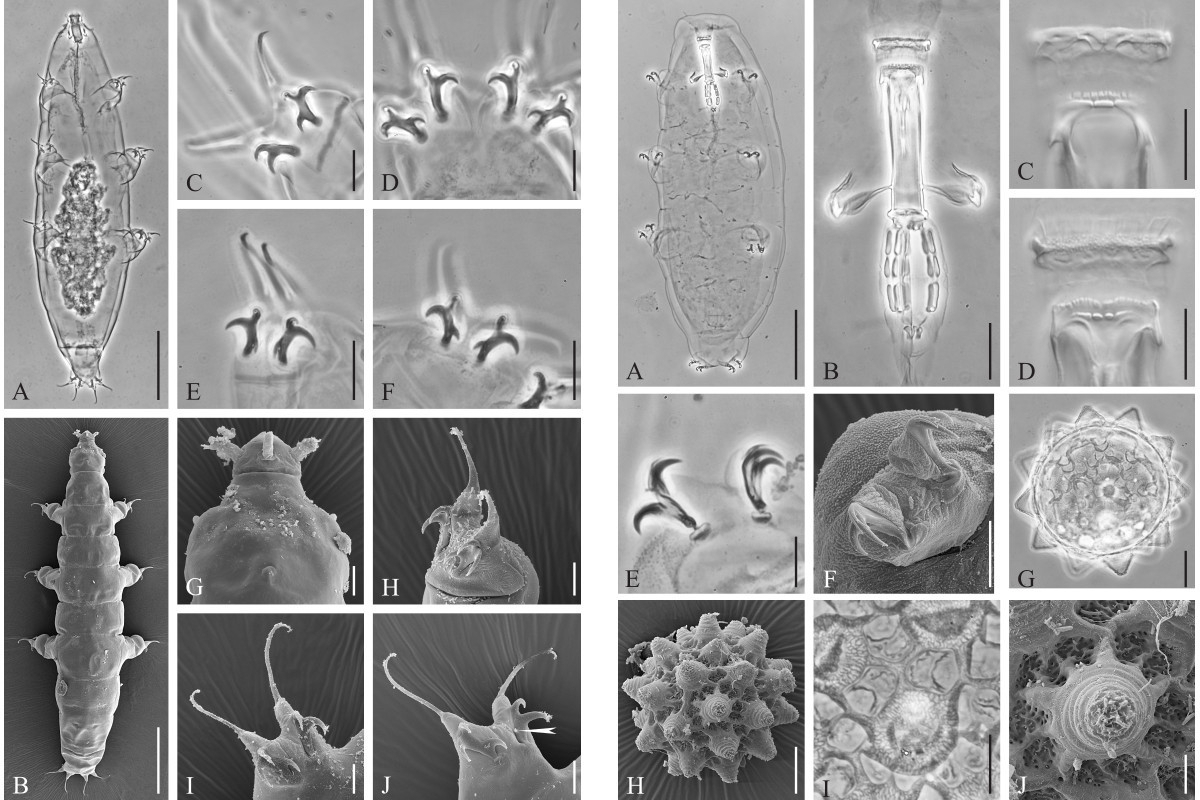St Petersburg University zoologists discover four new species of micro-invertebrates

Zoologists from St Petersburg University and the Zoological Institute of the Russian Academy of Sciences have discovered four previously unknown for the Russian fauna species of tardigrades. Tardigrades are micro-invertebrates renowned by their extreme stress tolerance and adaptability. For three other tardigrade species, the researchers have revealed significant genetic differences between the populations found in the North-West Russia and in other countries.
Tardigrades are microscopic invertebrates — the largest adults may reach a body length of 1.5 mm. They were named Tardigrada, which means "slow walkers", for their slow movement (2 to 3 mm per minute). These micro-invertebrates are able to adapt to living in almost all terrestrial and aquatic environments, from the ocean depths to highest mountains ranges. Moreover, the tardigrade has been the first terrestrial microorganism that can survive in the cold, irradiated vacuum of outer space.
The research findings are published in the scientific journal "Invertebrate zoology".
Traditionally, species in the phylum Tardigrada were identified based primarily on their morphology and functional anatomy. Due to their minuscule size, however, it is quite difficult to notice the differences between species. Hence, the prevailing scientific opinion was that tardigrades are highly variable and there are a small number of widespread species. With the advent of molecular systematics, it became obvious that the Tardigrada species diversity is much broader. At present, around 1,400 species are found worldwide.
We have conducted a unique study — the first in Russia and second worldwide — a targeted faunistic investigation of tardigrade fauna using the method of DNA barcoding. Despite the small amount of studied samples from relatively small geographic region the research findings show that the real species richness of tardigrades has been largely underestimated.
Denis Tumanov, Principal Investigator of the project, Assistant Professor in the Department of Invertebrate Zoology at St Petersburg University
DNA barcoding is a molecular method of species identification based on species-specific differences in short regions of their DNA. One of the advantages of this method is that it is less costly and time-consuming than traditional molecular identification methods. Some genes evolve very fast and their structures — nucleotide sequences — can be used to distinguish an organism from all other species. The method of DNA barcoding relies on sequence variation within a short and standardised region of the genome, designated as a "barcode", to provide accurate species identification. There is a DNA barcode database that includes the molecular markers of most of the animal species. For instance, mitochondrial cytochrome oxidase subunit I (COI) gene is used as a DNA barcode for tardigrades.
The facilities of the resource centres of the Research Park of St Petersburg University "Centre for Molecular and Cell Technologies" and "Centre for Culture Collection of Microorganisms" were used by the researchers in the course of this project. The continuation of this research work has been supported by a grant from the Russian Science Foundation (project "Study of the fauna of terrestrial tardigrades in Russia").
Using the method of DNA barcoding to study specimens collected in the North-West Russia, the researchers discovered 11 species of tardigrades, four of which are new for the fauna of Russia. For three other species, the study has demonstrated significant genetic differences between the populations found in the North-West Russia and the data obtained from the GenBank sequence database. In future, the researchers plan to study the new species in detail and give integrative descriptions of these species.
According to the Principal Investigator of the project Denis Tumanov, the research can be scaled up through changing the previous ideas about the tardigrade fauna of Russia and making a significant contribution to the field of tardigrade taxonomy and faunistics.

